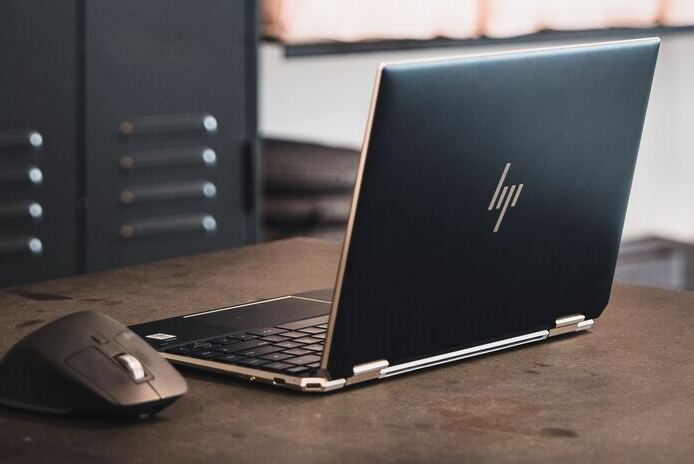Last week, Berkshire Hathaway, under the guidance of renowned value investor Warren Buffett, sold approximately 5.5 million shares of HP (NYSE:HPQ), a move that caught the market by surprise. This decision came after Berkshire initially acquired a stake in HP last year. Given Buffett’s general avoidance of tech stocks, except for Apple, which he categorizes as a consumer company, this development raises questions about whether you should follow suit and divest your HP stock.
HP Stock Falls After Berkshire Trims Stake
It’s not uncommon for stocks to experience declines when a major fund reduces its stake, just as they tend to rise when a fund initiates a new position, signaling confidence in the company. HP, in particular, wasn’t a profitable investment for Berkshire, as the stock lost nearly one-fifth of its value between Berkshire’s initial position disclosure in April 2022 and the recent announcement of the partial stake sale.
While Buffett’s renowned philosophy is to hold stocks “forever,” he has made exceptions in the past. Prior to HP, Berkshire swiftly sold stakes in tech companies like Oracle and pharmaceutical firms such as Pfizer, AbbVie, Bristol-Myers Squibb, and Merck. Although some of these decisions may have been made by different investment managers at Berkshire, Buffett himself was involved in the Oracle investment.
Despite last week’s stake sale, Berkshire remains the largest shareholder of HP. However, it is likely that the conglomerate will continue to gradually sell more shares, consistent with Buffett’s traditional approach. So, with Buffett’s company reducing its HP holdings, should you also consider selling your shares, or does the personal computer (PC) giant still present a buying opportunity?
HP Stock Has Underperformed the Markets
Buffett is typically associated with market-beating performance, but HP is one of the companies in Berkshire’s portfolio that has lagged behind the broader markets. After the recent decline, HP shares have risen by only about 4.7% for the year, while the S&P 500 Index has gained 16% over the same period.
Several factors contribute to HP’s underperformance, including both macroeconomic and company-specific factors. Global PC sales have experienced a significant slowdown over the last few quarters, with the industry facing unprecedented challenges. Additionally, the printing industry is grappling with structural headwinds as demand continues to decline.
HP’s fiscal Q3 earnings were also disappointing, as the company missed revenue estimates and provided lackluster guidance. In contrast, rival Dell saw its stock soar over 20% following a strong earnings release, marking its best performance since relisting in 2018.
Analyst Outlook for HPQ
Following HP’s earnings release, several brokerage firms, including Barclays, Citigroup, JPMorgan, and Bank of America, lowered their price targets for the stock. The average target price now stands at approximately $29.05, representing only a 6% upside from current levels.
Wall Street sentiment towards HPQ appears lukewarm, with a consensus rating of Hold among analysts. Of the 11 analysts covering the stock, only one has rated it as a Strong Buy, while two rate it as a Strong Sell, one as a Moderate Buy, and seven as a Hold.
While Buffett’s views sometimes diverge from those of analysts, in the case of HP, they seem to be in alignment.
Near-Term Challenges for HPQ
The PC industry’s slump is expected to persist for some time. IDC’s August report forecasts a 13.7% YoY decline in PC sales in 2023, with consumer demand facing competition from smartphones, consoles, tablets, and other devices. This marks the steepest annual decline in consumer PC shipments since the category’s inception.
Furthermore, with the global economy slowing and consumer discretionary spending remaining tepid, the short-term outlook for PC stocks appears less promising.
Potential for HPQ in 2024
Despite the current challenges, HP stock may see better days in 2024 for several reasons:
- The PC market is projected to rebound in 2024, with IDC predicting a 3.7% YoY increase in shipments. Replacement demand for PCs purchased between 2020 and 2021 is expected to drive growth in the coming years.
- The PC industry’s inventory overhang is expected to improve in the coming quarters, supporting average selling prices (ASPs) that have weakened recently.
- HP is actively implementing cost-saving measures and expects to achieve at least $560 million in annualized cost savings by the end of the year and $1.4 billion by the end of the following fiscal year.
- The convergence of artificial intelligence (AI) with PCs could drive industry growth in the coming years, as AI-enabled PCs offer new possibilities.
From a valuation perspective, HP stock currently trades at a next-12-month price-to-earnings (P/E) multiple of 8.42x, below historical averages. Additionally, its dividend yield of 3.8% may be attractive to investors seeking high-dividend stocks.
In conclusion, while HP stock may currently be out of favor with the markets, including Berkshire Hathaway’s reduction in holdings, the stock’s prospects could improve in 2024.
Featured Image: Unsplash @ Mika Baumeister















